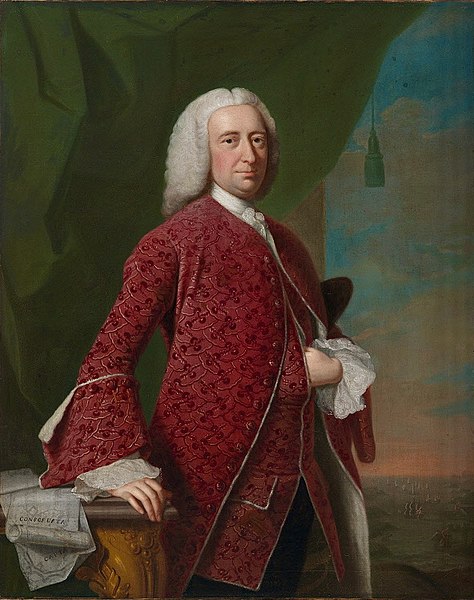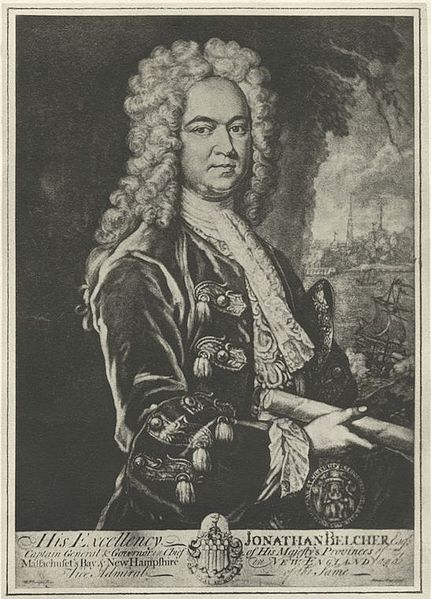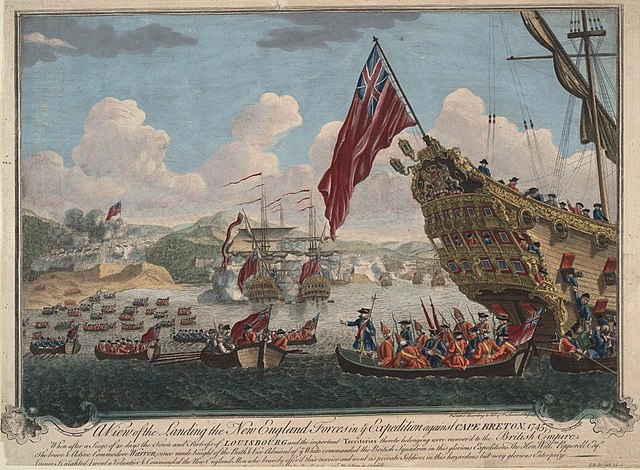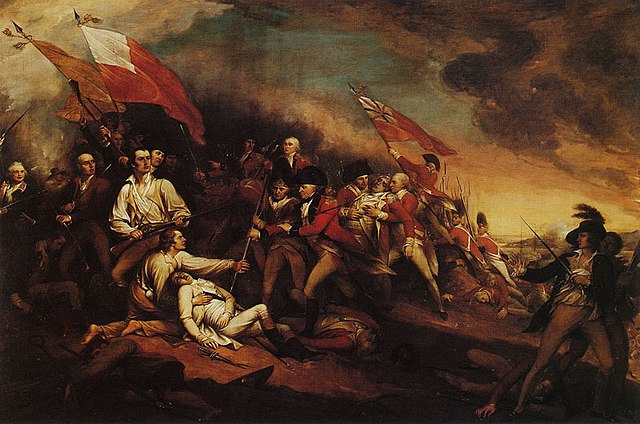William Shirley was a British Army officer and colonial administrator who served as the governor of the British American colonies of Massachusetts Bay and the Bahamas. He is best known for his role in organizing the successful capture of Louisbourg during King George's War, and for his role in managing military affairs during the French and Indian War. He spent most of his years in the colonial administration of British North America working to defeat New France, but his lack of formal military training led to political difficulties and his eventual downfall.
William Shirley
Engraved portrait of Jonathan Belcher
William Pepperrell, portrait by John Smibert
Colored engraving depicting the Siege of Louisbourg
Province of Massachusetts Bay
The Province of Massachusetts Bay was a colony in New England which became one of the thirteen original states of the United States. It was chartered on October 7, 1691, by William III and Mary II, the joint monarchs of the kingdoms of England, Scotland, and Ireland, and was based in the merging of several earlier British colonies in New England. The charter took effect on May 14, 1692, and included the Massachusetts Bay Colony, the Plymouth Colony, the Province of Maine, Martha's Vineyard, Nantucket, Nova Scotia, and New Brunswick; the Commonwealth of Massachusetts is the direct successor. Maine has been a separate state since 1820, and Nova Scotia and New Brunswick are now Canadian provinces, having been part of the colony only until 1697.
A 1773 lithograph of the Boston Tea Party
John Trumbull's 1834 portrait of Joseph Warren's death at the Battle of Bunker Hill






